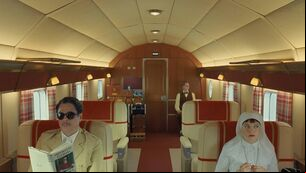Stevie G: Clubbing isn’t dead, it’s different

Daytime clubbing at the Marina Market.
Today I’ll give you my two cents! I’ve been DJing and going to clubs since I was a teenager and remain ionate about nightlife, so I’ve been thinking about this topic a lot lately.
I’ll get to my personal perspective imminently but there is no doubt things have changed a little since covid. Venues are closing at a fairly steady rate and in Cork, Dublin, and other cities and towns, there are far fewer late night clubbing options available. It’s a pattern that is also continuing in Europe and throughout the world.
A generation of teenagers from 2020 on have grown up differently to previous ones, and the traditional route of teenage discos to regular clubbing has been disrupted somewhat.
These discos still happen and young people still go out once they reach 18ish, but it has definitely changed a little, and many tell me that they can’t always get into venues until they are slightly older.
Festivals remain ubiquitous, and many youngsters travel to other European cities to go clubbing, and go out less regularly here. This is a big pattern that I can see across the board.
Youngsters have less disposable income and are facing massive rent costs compared to what my generation experienced. The price of everything continues to rise and while festivals and other events remain expensive too, more people are spending more money on such experiences instead of regular weekly clubbing events.
The clubs are rarely weekly now anyway. Those that have closed will point to the massive costs, overheads, insurance and red tape involved, and having operated a venue during the last recession, I know all about this. It’s an almost impossible task.
Many in these industries tie in with DJs and clubland and it’s my own feeling that young people are still enthusiastic about these elements. DJ culture is bigger than ever on TikTok and Instagram, and while regular club events have gone more underground, it doesn’t mean that clubbing is dead.
On the contrary, it’s booming, and there are underground raves aplenty, while smaller venues such as bars and cafes regularly host DJs and nights.
I’m playing lots of daytime and early evening events and my “Everybody Dance” party in the Marina Market even has the tagline: “Thursday morning is the new Saturday night”. You will probably be familiar with the “Before midnight” parties that are springing up everywhere, (I’m doing one in June), and there are an increasing number of other morning raves, daytime brunches, and other early evening events too.
Part of the appeal is that many people are not used to being out all night anymore. Some of this is to do with the aforementioned changes after covid.
Do they hate clubbing? Again, it’s often the opposite.
People still love the music and the culture but they don’t want to, or can’t, be out until four in the morning. Alcohol and drug behaviour has no doubt changed too, and ties with my points regarding fitness, but this isn’t black and white. Addiction and misuse of alcohol and other substances continues too, regardless of the club scene.
Music people will always adapt to circumstance and creativity will always flourish no matter what the circumstances.
Much of the sound system culture and club culture that has provided the backbone to club life was born out of such creativity, and even when the clubs become hotels and apartments, the music and creativity will flourish elsewhere.
Give Us the Night and other volunteer groups will continue to campaign brilliantly for later hours and more of a political presence for music, but in the meantime, the DJs, promoters, and club goers will get their clubbing fix no matter what!







